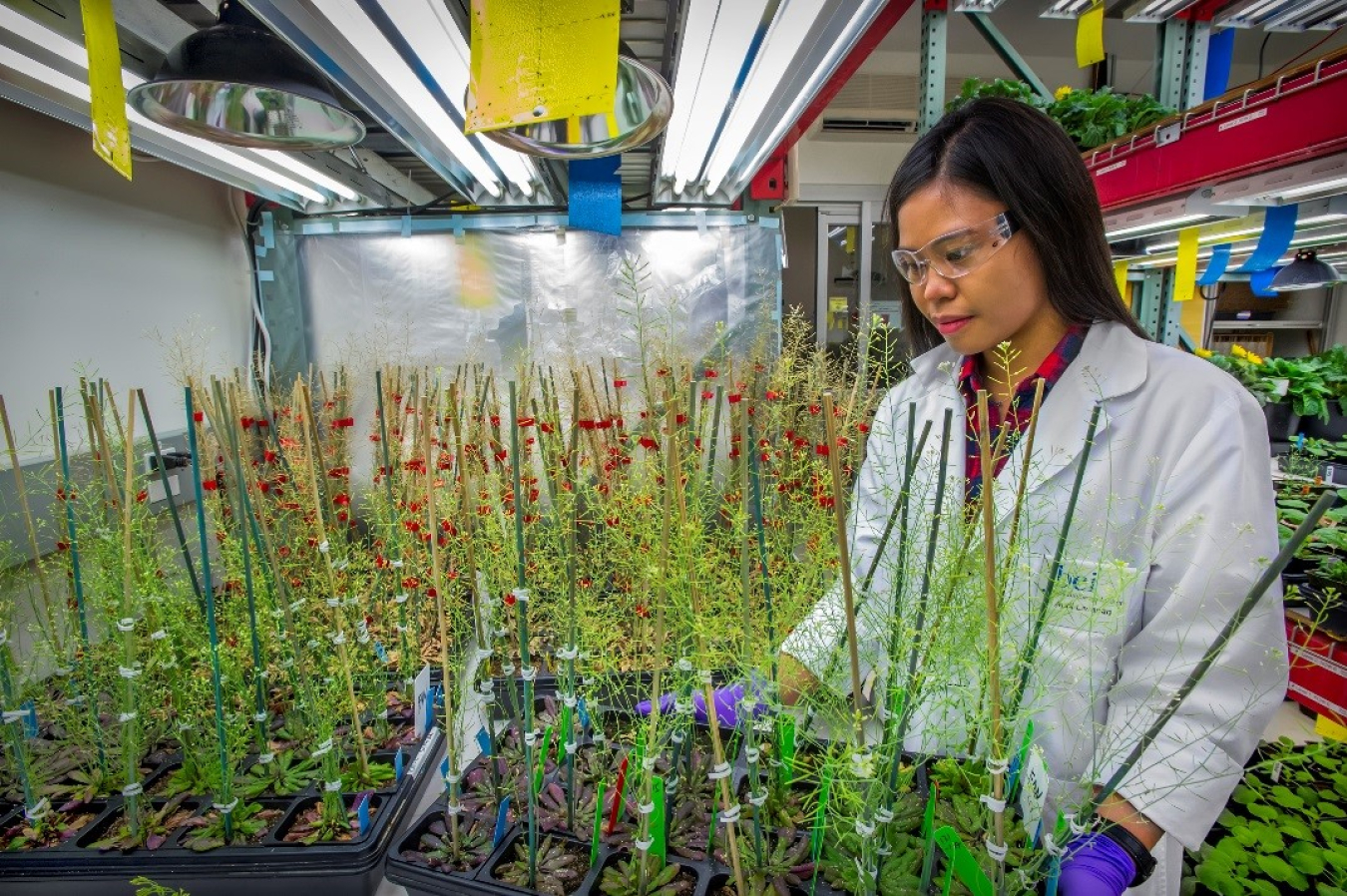
Photo courtesy of the Joint Bioenergy Institute.
The job of biological sciences technician is an entry-level position in bioenergy, in the agriculture, life, and physical sciences career sub-sector. Job seekers with agriculture, life, and physical sciences backgrounds or students studying science could consider this type of entry-level bioenergy job.
Biological sciences technicians work under the direction of senior technical staff to develop, design, optimize, and eventually scale up biomass conversion processes that make use of biological organisms, molecules, and systems (e.g., microorganisms, enzymes). People in these positions may hold internships or entry-level jobs in bioenergy biological science.
Biological Sciences Technician
| Alternate Title(s) | Biological Sciences Trainee; Biochemist Trainee; Geneticist Trainee; Microbiology Technician; Molecular Biologist Trainee |
| Education & Training Level Description | Bachelor’s degree in Biology, Biochemistry, Cellular Biology, Computational Biology,Genetics, Microbiology, Microbial Ecology, Molecular Biology or a related field. |
| Experience | 0–3 years |
| Job Skills |
|
| Job Profile | Biomass is the only renewable resource that can be converted into infrastructure compatible liquid transportation fuels—such as gasoline, jet, and diesel fuel—in the near term. It can also be used to produce valuable chemicals for manufacturing, as well as to supply power for our electrical grid. The development of improved energy crop traits and critical advances in biology-based conversion technologies will move the industry from the research and pilot stage to large-scale commercialization—turning the vast potential of biomass into a reality. With a strong foundation in the biological sciences, biologists, microbiologists, biochemists, molecular biologists, and geneticists are in a unique position to deliver the key innovations that will drive the industry forward. Biologists apply their knowledge and understanding of the principles of biochemistry, cellular biology, molecular biology, and genetics to help the industry develop novel biological pathways to transform biomass into fuel or high-value chemical products. Modern biological techniques also allow for improvements in crop traits. For example, traits such as drought tolerance, low fertilizer requirements, and increased yield can enhance the profitability and reduce the environmental impacts of bioenergy-related agricultural systems. At the entry level, candidates work under the direction of senior technical staff to develop, design, optimize, and eventually scale up biomass conversion processes that make use of biological organisms, molecules, and systems (e.g. microorganisms and enzymes). A bachelor's degree in biology or other life sciences is preferred. Equivalent experience or training may substitute for the degree. Employers also value relevant experience gained through undergraduate capstone research projects, part-time employment, internships, or volunteer work. A good foundational understanding of the physical and chemical sciences is recommended, as well as solid quantitative skills in math and computer coding. |
More Entry-Level Agriculture, Life, and Physical Sciences Jobs in Bioenergy
Related Bioenergy Career Resources
Bioenergy Career Exploration Wheel

